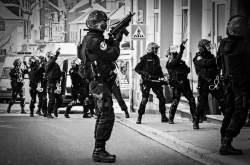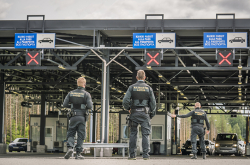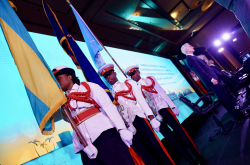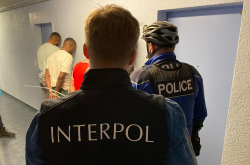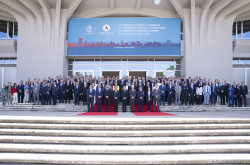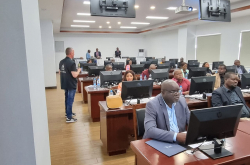FOZ DE IGUACU, Brazil – South American Police leaders have concluded an INTERPOL summit with a call to boost the region’s collective response to transnational organized crime and terrorism.
The three-day (20 - 22 May) meeting in the Argentina, Brazil and Paraguay tri-border area concluded with police chiefs endorsing a number of conclusions aimed at improving regional police performance, particularly in the areas of corruption, terrorism, drug and firearms trafficking and the increased use of INTERPOL databases.
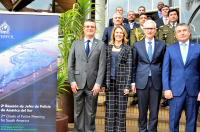
INTERPOL Secretary General Jürgen Stock said national expertise and knowledge is vital in developing a global policing architecture to address transnational crime.
“Each police chief knows very well the challenges they face. By bringing together the law enforcement leaders from across the region, we can identify what INTERPOL can do to unite their efforts in targeting both specific and emerging threats,” said Secretary General Stock.
“To this end, your leadership is essential to both regional and global security,” the Head of INTERPOL told the Police Chiefs.
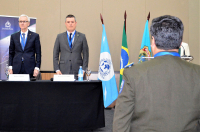
Boosting South American security
Maurício Valeixo Director General of the Brazilian Federal Police, highlighted the importance of INTERPOL’s annual meeting in shaping regional police cooperation.
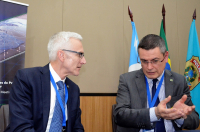
“Only by addressing regional crime through a global lens can we tackle today’s pressing security challenges coherently and effectively. Cooperation is fundamental and the only way to realistically protect our national security, economies and people,” said the Brazilian Police Chief.
The Chief of Argentina’s Federal Police, who also serves as INTERPOL Vice President for the Americas, Néstor Roncaglia, said: “By holding this meeting in a strategic tri-border area, police chiefs are sending a strong message to regional crime groups that we are using the world’s largest police organization to hunt them down with a view to arrest and extradition. Their days of freedom are numbered.”

Stronger Latin American National Central Bureaus (NCBs)
Police leaders were briefed on a range of initiatives to support and modernize police forces, from operational and investigative support to enhancing database usage and expanding INTERPOL’s global communications network – called I-24/7 – to national police and border control agencies.

INTERPOL Secretary General Stock announced the launch of a new I-One initiative to strengthen the capacity of Latin American NCBs through IT equipment renewal and training, so as to pave the way forward for future I-24/7 connections at borders for systematic and automatic traveller screening.
The strong performance and optimal capacity of INTERPOL NCBs is central to international police cooperation, and a critical component of INTERPOL’s vision of a safer world.

Tackling local crime with global tools
The INTERPOL NCB in Brasilia manages a regional satellite INTERPOL office in Foz de Iguacu to help local police conduct international and regional police cooperation.
“Every day, we intercept smugglers using our land borders and waterways to smuggle illicit products into South America,” said Police Chief Mozart Fuchs, who heads the INTERPOL office in the tri-border town on behalf of Brazil’s Federal Police.
“INTERPOL’s presence in Foz de Iguacu is directly linked to the growing number of itinerant criminals, particularly INTERPOL Red Notice fugitives, detected at the multiple borders we manage here. That is the power of global police cooperation at the regional level,” concluded Commissioner Fuchs.





